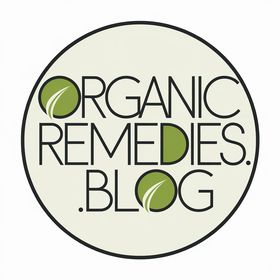Banish Your Cold in Just One Day With This Natural Trick!
You can’t just wave a magic wand to banish your cold in one day, but there’s a natural trick that can help you feel significantly better. Staying hydrated is crucial, as it thins mucus and supports your immune system. So, what exactly should you be drinking, and which foods can give your recovery a boost? Discover the essential nutrients and remedies that can make a difference in how you tackle your cold.
Key Takeaways
- Stay hydrated by drinking plenty of fluids like water, herbal teas, and broths to ease congestion and support recovery.
- Incorporate vitamin C-rich foods such as citrus fruits and bell peppers to boost your immune system.
- Use honey to soothe a sore throat and alleviate cough symptoms for immediate relief.
- Rest adequately, aiming for 7-9 hours of sleep to enhance your body’s healing process.
- Consider herbal remedies like ginger tea and echinacea to support immune function and combat cold symptoms.
Understanding the Common Cold
The common cold is a viral infection that affects your upper respiratory system, and it can strike anyone at any time, especially during colder months. Symptoms like a runny nose, sore throat, and cough often accompany it. While there’s no cure, you can ease discomfort with natural cold remedies. Honey is a soothing option for your throat, while ginger tea can help boost your immune system. Garlic also has antiviral properties, making it a great addition to your meals. Incorporating natural remedies can significantly alleviate symptoms and support your recovery.
The Power of Hydration
Staying well-hydrated is essential when battling a cold. Water plays a crucial role in thinning mucus, making it easier to expel and relieving congestion. It also helps maintain your body temperature and supports overall immune function. Aim for at least eight glasses of fluids daily, but don’t stop at just water—herbal teas and broths can provide soothing warmth and additional nutrients. Additionally, proper hydration can aid in overall immune function, which is vital for recovery. Avoid dehydrating beverages like caffeine and alcohol, as they may worsen your symptoms.
Essential Nutrients for Recovery
To recover from a cold, it’s crucial to focus on essential nutrients that boost your immune system. Key vitamins like C and D play a significant role in fighting off infections, while staying hydrated aids in your body’s healing process. Additionally, incorporating a timeless immunity herb can further enhance your immune defenses.
Key Vitamins for Immunity
When it comes to boosting your immunity, key vitamins play a crucial role in your body’s recovery process. Incorporating these essential nutrients can help your immune system function optimally, reducing the duration and severity of colds. Here’s a quick guide to some vital vitamins:
| Vitamin | Benefits | Sources |
|---|---|---|
| Vitamin C | Enhances immune function | Citrus fruits, bell peppers |
| Vitamin D | Regulates immune responses | Sunlight, fatty fish |
| Vitamin A | Supports mucosal barriers | Carrots, sweet potatoes |
| Vitamin E | Acts as an antioxidant | Nuts, seeds |
| Vitamin B6 | Aids in antibody production | Chickpeas, bananas |
Make sure to include these in your diet!
Hydration and Recovery Importance
How crucial is hydration for your recovery from a cold?
Staying hydrated is vital, as fluids help thin mucus, making it easier to expel and alleviating congestion.
Water, herbal teas, and broths are excellent choices.
Proper hydration also supports your immune system, ensuring that essential nutrients reach your cells efficiently.
Studies show that dehydration can prolong illness and slow down recovery.
Aim for at least eight glasses of fluids daily, and don’t forget electrolytes, which can replenish vital minerals lost during illness.
Herbal Remedies to Try
Herbal remedies offer a natural approach to easing cold symptoms, tapping into the power of nature’s pharmacy.
Ginger can help relieve sore throats and congestion, while echinacea may boost your immune response. Peppermint tea acts as a natural decongestant, opening up your airways. Honey, known for its soothing properties, can alleviate coughs and throat irritation. Additionally, elderberry extract has antiviral properties that might shorten the duration of your cold.
Incorporating these remedies into your routine not only provides relief but also supports your body’s healing process, allowing you to feel better faster. Raw honey and ginger are particularly effective for quick symptom relief, making them excellent choices in your herbal arsenal. Explore these options for a holistic approach!
Rest and Recovery Techniques
Prioritizing rest is crucial for your body’s recovery from a cold.
When you’re fighting off illness, your immune system needs time to heal and regenerate.
Aim for at least 7-9 hours of sleep each night, and consider taking short naps during the day if you’re feeling particularly fatigued.
Stay hydrated by drinking water, herbal teas, or broths, as fluids help thin mucus and ease congestion.
Avoid strenuous activities, and listen to your body—if you need to slow down, do it.
Incorporating gentle stretching or deep breathing exercises can also promote relaxation and enhance your recovery process. Additionally, practicing the 4-7-8 breathing technique can help calm your mind and prepare your body for restful sleep.
Preventing Future Colds
To keep future colds at bay, it’s essential to adopt a proactive approach to your health.
Here are four effective strategies:
- Wash your hands regularly: Frequent handwashing can eliminate germs that cause colds.
- Boost your immunity: Incorporate vitamin-rich fruits and vegetables into your diet to strengthen your immune system.
- Stay hydrated: Drinking plenty of water helps maintain optimal body functions and keeps mucous membranes moist.
- Get enough sleep: Prioritize 7-9 hours of quality sleep to enhance your body’s ability to fight off infections. Additionally, consider drinking immunity-boosting tea as part of your daily routine to further support overall health and wellbeing.
When to Seek Medical Attention
If your cold symptoms worsen or persist despite home treatment, it’s time to get medical help.
Pay attention to signs like difficulty breathing or a high fever that lasts more than a few days, as these could indicate a more serious issue.
Additionally, if you notice persistent fever symptoms, don’t hesitate to consult a healthcare professional if you’re feeling uncertain about your symptoms.
Severe Symptoms Persist
When should you really worry about your cold symptoms?
If your cold symptoms persist or worsen, it’s crucial to seek medical attention.
Here are some signs to watch for:
- High fever: A fever over 103°F (39.4°C) that doesn’t respond to medication.
- Severe headache: Intense, persistent headaches that don’t improve.
- Chest pain: Discomfort or pain in your chest, especially when breathing or coughing.
- Persistent sinus pain: Pain that lasts more than a week or worsens significantly.
Don’t ignore these symptoms—acting quickly can prevent complications and ensure you get the care you need.
Difficulty Breathing
How can you tell if your cold is turning into something more serious?
If you’re experiencing difficulty breathing, it’s time to take action.
This symptom can indicate an underlying issue, such as bronchitis or pneumonia.
Pay attention to other signs like wheezing, chest tightness, or shortness of breath.
If these symptoms worsen or don’t improve, don’t hesitate to seek medical attention.
Remember, it’s always better to be cautious.
Your health is key, and timely intervention can make a significant difference.
Trust your instincts—if you feel something’s off, reach out to a healthcare professional for guidance and support.
High Fever Lasts
What should you do if you find yourself battling a high fever that lasts more than a few days?
It’s essential to seek medical attention.
A prolonged high fever can indicate a serious underlying condition.
Watch for these signs:
- Persistent Fever: If your fever exceeds 103°F (39.4°C) or lasts more than three days.
- Severe Symptoms: Experience worsening headaches, rash, or difficulty breathing.
- Dehydration: Notice signs like dry mouth, dizziness, or infrequent urination.
- Confusion: If you feel unusually disoriented or lethargic.
Don’t hesitate to contact a healthcare professional for guidance!





